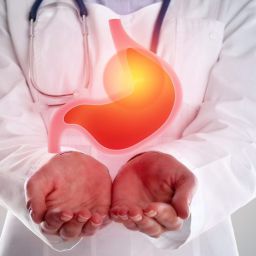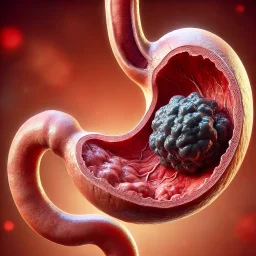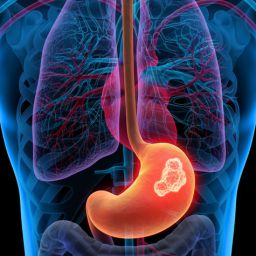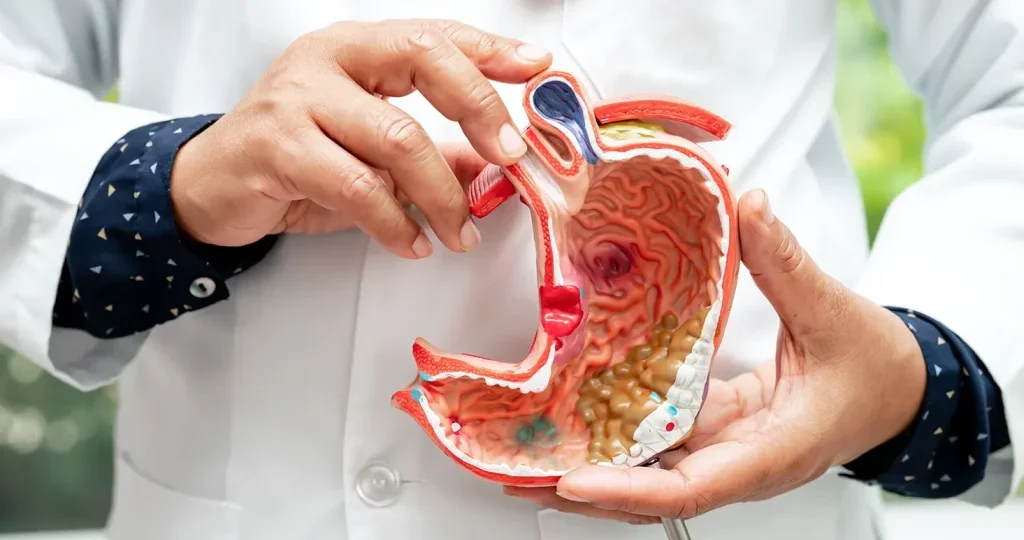
The Psychological Impact of a Stomach Cancer Diagnosis
A diagnosis of stomach cancer can be an overwhelming experience for patients and their families. The emotional and psychological challenges associated with cancer diagnosis and treatment are significant and can have a lasting impact. It’s common for patients to experience a range of emotions, including fear, anxiety, sadness, anger, and confusion. The following are some of the most common psychological effects faced by individuals diagnosed with stomach cancer:
1. Fear of the Unknown
One of the most immediate psychological responses to a cancer diagnosis is fear. Patients may fear the unknown aspects of their diagnosis, including the severity of the disease, the effectiveness of the treatment, and the possibility of recurrence. Fear of death, or the uncertainty of the future, can be a significant emotional burden.
2. Anxiety and Stress
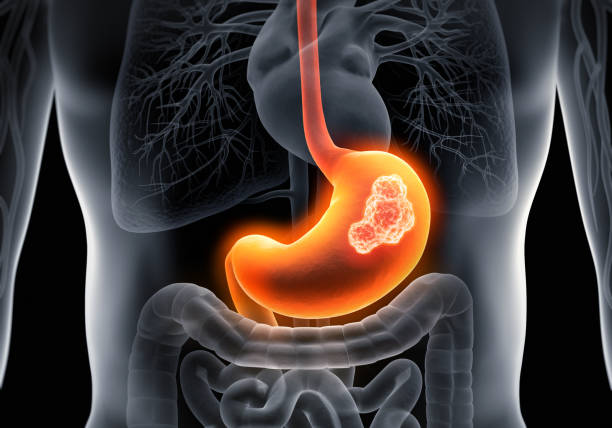
The stress and anxiety caused by a stomach cancer diagnosis can manifest in many ways, including physical symptoms such as difficulty sleeping, loss of appetite, or fatigue. Patients may experience heightened levels of anxiety about upcoming treatments, potential side effects, or the impact on their daily lives. These feelings can also be triggered by concerns over financial burdens, changes in family dynamics, and social isolation.
3. Depression
Depression is common among cancer patients, including those diagnosed with stomach cancer. The physical toll of the disease and its treatment, combined with the emotional strain of dealing with a life-threatening illness, can lead to feelings of hopelessness, sadness, and despair. Depression can negatively affect a patient’s ability to cope with treatment and may interfere with their overall quality of life.
4. Social Withdrawal and Isolation
Many stomach cancer patients experience a sense of isolation due to physical limitations and changes in their appearance or abilities. The illness may interfere with social activities, and patients may feel disconnected from family and friends. This isolation can exacerbate feelings of loneliness, further impacting their emotional well-being.
5. Cognitive and Emotional Changes
In addition to emotional struggles, cancer treatment, particularly chemotherapy, can lead to cognitive changes often referred to as “chemo brain.” These changes may include difficulty concentrating, memory issues, and a reduced ability to process information. These cognitive changes can add to the emotional burden of cancer treatment.
The Role of Psychological Support in Stomach Cancer Treatment
Psychological support plays a crucial role in helping patients navigate the emotional and mental challenges of cancer treatment. Addressing the psychological needs of cancer patients can improve their overall experience, enhance their ability to cope with treatment, and contribute to better outcomes. Psychological support is not just about managing negative emotions; it is about promoting a sense of empowerment, self-efficacy, and resilience.
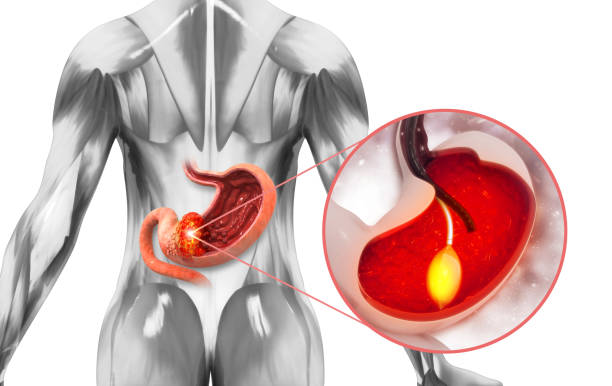
1. Reducing Anxiety and Stress
One of the primary benefits of psychological support is its ability to reduce anxiety and stress. Various therapeutic techniques, such as cognitive-behavioral therapy (CBT), mindfulness, and relaxation exercises, can help patients manage their stress levels and cultivate a sense of calm. By teaching patients how to cope with anxiety, they can feel more in control of their situation and improve their ability to handle the challenges of treatment.
Support groups are also a valuable source of emotional support, as they provide a space for patients to share their experiences and connect with others who are going through similar struggles. Knowing that they are not alone in their journey can significantly reduce feelings of fear and isolation.
2. Improving Coping Strategies
Psychological support equips patients with the tools and techniques needed to cope with the physical and emotional challenges of cancer treatment. Therapists may work with patients to identify unhealthy thought patterns and replace them with more constructive, adaptive ways of thinking. This process, known as cognitive restructuring, can help patients manage negative emotions such as fear, anger, and frustration.
Coping strategies may include relaxation techniques, guided imagery, or progressive muscle relaxation, which can help reduce physical tension and promote emotional well-being. Additionally, psychoeducation can empower patients to understand their diagnosis and treatment, giving them the knowledge to make informed decisions and feel more in control.
3. Combating Depression and Enhancing Mood
Psychological support is particularly important for managing depression, which is prevalent among cancer patients. Depression can significantly affect a patient’s ability to engage in treatment and can lead to a reduced quality of life. Psychotherapy, including individual therapy and group therapy, can provide patients with a safe space to express their emotions and work through difficult feelings.
Therapeutic interventions such as CBT have been shown to be effective in treating depression by helping patients reframe negative thoughts and develop more positive perspectives. Medication, such as antidepressants, may also be prescribed in conjunction with psychotherapy to address more severe symptoms of depression.
4. Improving Social Support and Reducing Isolation
Support groups and individual therapy provide opportunities for patients to connect with others who understand their experience. These connections can help reduce the feelings of isolation that many stomach cancer patients face. Social support is a crucial aspect of recovery, as it can provide emotional comfort, practical assistance, and a sense of belonging.
Support from family and friends is equally important, and psychological support can help patients communicate their emotional needs to loved ones. Encouraging open communication between patients and their support networks can strengthen relationships and ensure that patients feel supported throughout their treatment.
5. Enhancing Quality of Life
Quality of life is a key consideration in cancer treatment, as it encompasses not only the physical well-being of the patient but also their emotional, social, and psychological health. Psychological support can contribute to a higher quality of life by helping patients manage their mental health, alleviate symptoms of anxiety and depression, and improve their coping strategies.
Patients who receive psychological support are often better equipped to handle the stress of treatment, which can result in improved physical health outcomes. By addressing the emotional aspects of cancer, psychological support can enhance a patient’s overall experience and help them maintain a more positive outlook.
Methods of Psychological Support for Stomach Cancer Patients
There are several methods through which psychological support can be provided to stomach cancer patients. Each method can be customized to meet the individual needs of the patient and can be combined to offer a comprehensive approach to mental health care.
1. Individual Therapy (Psychotherapy)
Individual therapy provides patients with the opportunity to work one-on-one with a trained therapist. The therapist can help patients address their emotional struggles, explore their feelings about their diagnosis, and develop coping strategies. Various therapeutic approaches may be used, including cognitive-behavioral therapy (CBT), psychodynamic therapy, and person-centered therapy.
CBT, in particular, is effective for addressing anxiety, depression, and negative thought patterns. It helps patients reframe irrational beliefs and develop more adaptive coping strategies.
2. Support Groups
Support groups bring together individuals who are experiencing similar challenges, creating a sense of community and shared understanding. For stomach cancer patients, support groups provide a space to express feelings, share experiences, and offer mutual support. These groups are often facilitated by a trained counselor or therapist and may take place in person or online.
Group therapy can be especially helpful for patients who feel isolated or disconnected from their usual social networks. It can provide reassurance, foster a sense of belonging, and help patients develop new coping strategies.
3. Mindfulness and Relaxation Techniques
Mindfulness-based interventions have gained popularity as an effective way to manage stress and anxiety. Mindfulness encourages patients to focus on the present moment, promoting relaxation and reducing rumination about the future or past. Techniques such as meditation, deep breathing exercises, and progressive muscle relaxation can help patients manage physical tension and emotional distress.
Mindfulness has been shown to reduce anxiety, improve mood, and promote a sense of calm, which can be particularly beneficial for cancer patients facing the stress of treatment.
4. Art and Music Therapy
Art and music therapy offer creative ways for patients to express their emotions and cope with stress. These therapies allow patients to explore their feelings in a nonverbal way, which can be especially helpful for those who find it difficult to articulate their emotions. Art and music therapy can promote relaxation, reduce anxiety, and enhance emotional well-being.
5. Family Counseling
Cancer affects not only the patient but also their family members. Family counseling provides a space for loved ones to discuss their feelings, share concerns, and learn how to support the patient effectively. Family therapy can help improve communication within the family, reduce misunderstandings, and strengthen relationships.
Psychological support is a vital component of stomach cancer treatment, addressing the emotional and mental challenges that patients face throughout their journey. By providing counseling, therapy, support groups, and stress management techniques, patients can improve their coping strategies, reduce anxiety and depression, and enhance their quality of life. The benefits of psychological support are not limited to emotional well-being; they also contribute to better physical health outcomes and a more positive treatment experience.
As cancer treatment continues to evolve, integrating psychological support into the care plan is essential. It allows patients to face the challenges of their diagnosis with resilience, strengthens their mental and emotional health, and helps them maintain hope during an incredibly difficult time. For patients with stomach cancer, psychological support is not only beneficial but necessary for achieving the best possible outcomes.

